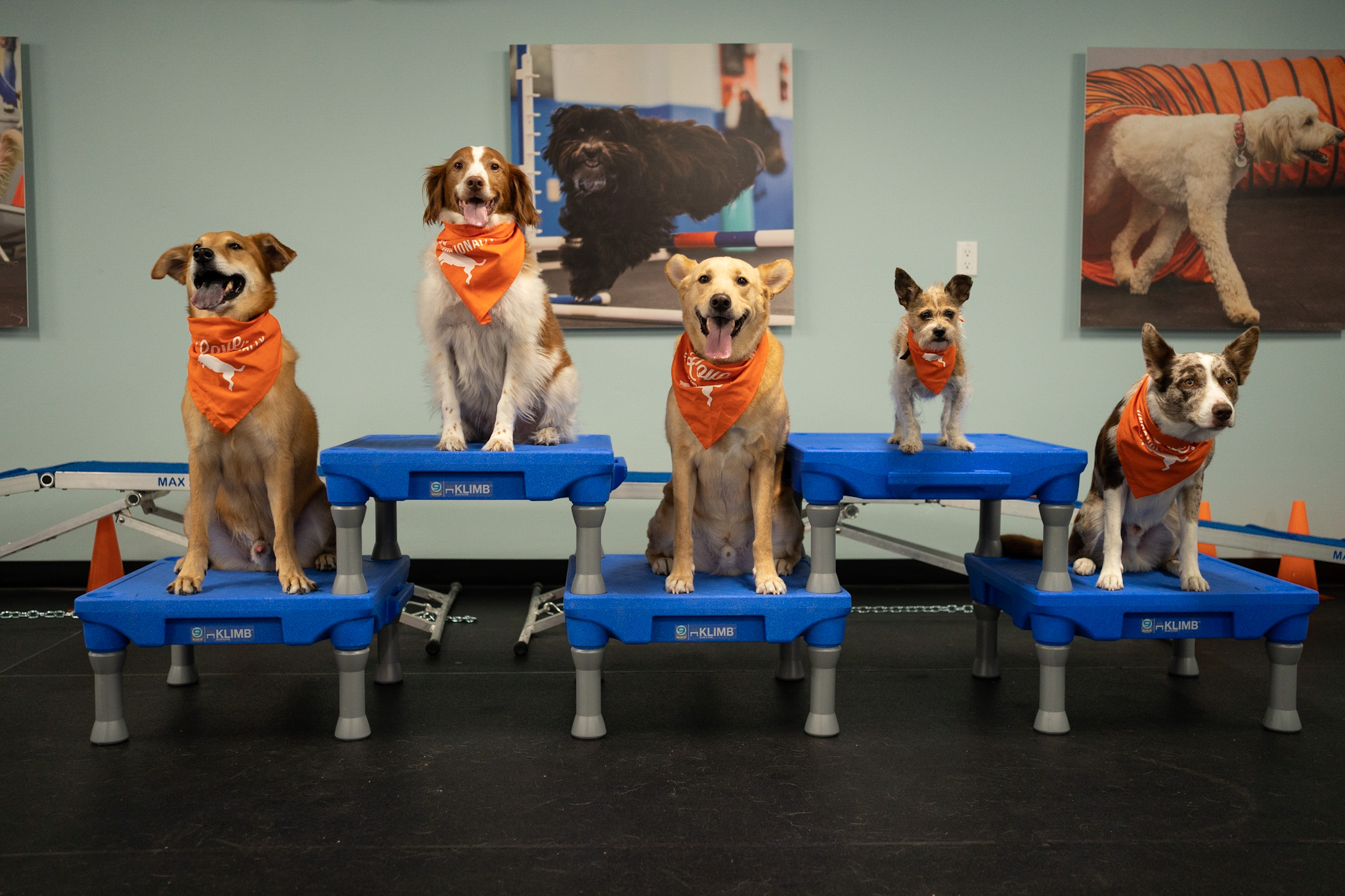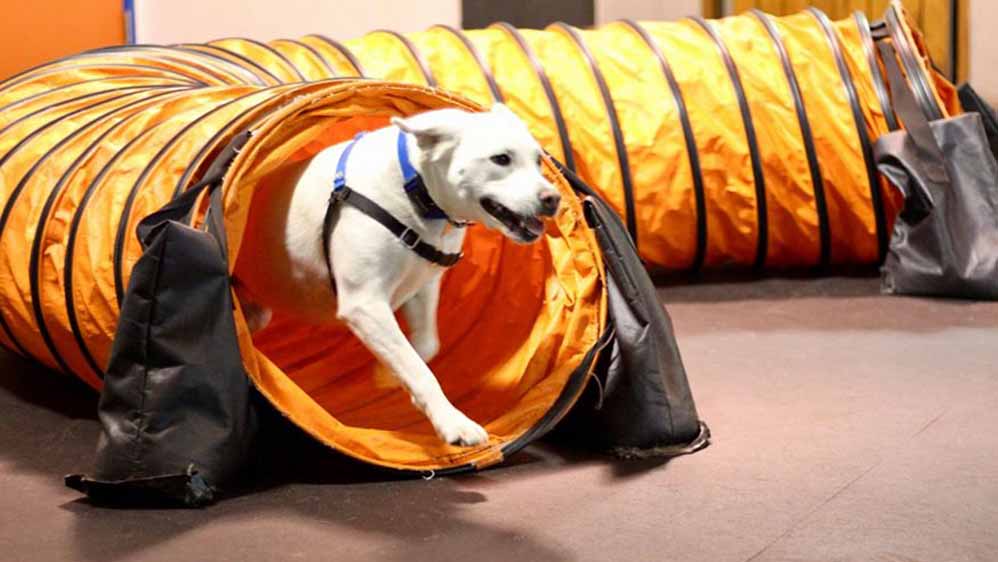Unleash Potential with Dog Training Near Me: Find Your Local Experts
Unleash Potential with Dog Training Near Me: Find Your Local Experts
Blog Article
Unlock Your Dog's Possible: Proven Pet Dog Training Techniques for Success
Effective pet training is a nuanced process that pivots on understanding canine habits and using scientifically backed approaches. By incorporating positive support, establishing clear commands, and focusing on socializing, dog owners can grow an efficient connection with their family pets.
Recognizing Dog Behavior
Comprehending pet dog actions is crucial for effective training and fostering a positive connection between pet dogs and their proprietors. A thorough understanding of canine body language, articulations, and social communications is important for recognizing their feelings and demands. Dogs communicate primarily through non-verbal cues; as an example, a wagging tail may show exhilaration, while pinned ears can signify anxiety or entry.

In addition, environmental factors play a substantial role fit a canine's actions. Modifications in routine, new environments, or the existence of strange individuals can lead to anxiety or anxiety in pet dogs. Identifying these triggers allows proprietors to mitigate negative responses and establish ideal training techniques.
Eventually, a deep understanding of pet behavior lays the foundation for effective training methods, enhancing both habits and the total bond between the canine and its proprietor. dog training near me. This understanding is crucial for fostering a well-adjusted, delighted canine friend
Positive Reinforcement Methods
Efficient training counts heavily on positive reinforcement methods, which have actually been revealed to generate substantial lead to shaping preferred habits in pets. This strategy involves rewarding a canine for displaying certain actions, therefore increasing the possibility that these habits will be repeated. Benefits can take different types, including treats, praise, toys, or playtime, depending upon what inspires the private canine.

It is vital to slowly terminate rewards as the pet dog finds out the behavior, transitioning to periodic support. This strategy preserves the actions over time while avoiding dependence on constant rewards. By concentrating on favorable support, trainers can cultivate a trusting connection with their pets, promoting a healthy and cooperative training setting that boosts overall obedience and performance.
Establishing Constant Commands
An essential facet of effective dog training is the establishment of consistent commands. Consistency in commands is important for efficient interaction in between the dog and the trainer. When commands are consistent, pet dogs find out to link specific words with desired behaviors, which speeds up the training process and improves understanding.
To establish constant commands, it is vital that all relative utilize the exact same terms and motions. As an example, if someone makes use of "rest" while an additional claims "take a seat," it can produce confusion for the dog. Select clear, unique words for commands and make sure everybody associated with the canine's training follows these selections.
Reinforce commands with regular technique, making sure that the dog obtains enough possibilities to respond appropriately. When a pet dog successfully adheres to a command, immediate favorable reinforcement must follow.
Last but not least, hold your horses. Developing consistent commands requires time and effort. With commitment and clarity, you will aid your canine create a solid understanding of expectations, inevitably resulting in a mannerly companion.
Socializing and Direct Exposure
Interacting socially a pet dog is vital for cultivating a well-adjusted and confident friend. This process involves subjecting your pet to a variety of atmospheres, individuals, and various other animals to establish their social abilities and flexibility. Early socializing, ideally between the ages of three to fourteen weeks, is critical, as it lays the groundwork for a canine's future actions.
Throughout socialization, goal to give positive experiences in different setups, such as parks, active roads, and homes with other animals. Introduce your pet to various stimuli, including audios, views, and scents, guaranteeing that each experience is rewarding. This exposure assists minimize fear and stress and anxiety, leading the way for an extra resistant canine.
Involving in regulated group play sessions with other canines can also enhance social abilities, educating your family pet proper interactions and boundaries. Focusing on socializing will considerably add to your pet's general happiness and actions throughout their life.
Conquering Common Training Obstacles

One more constant concern is disturbance. Dogs may struggle to focus in hectic or unknown setups. Progressively desensitize your pet to distractions by starting training in a quiet environment and slowly presenting even more stimulations as they come to be proficient (dog training near me). Positive reinforcement strategies, such as deals with and appreciation, can preserve motivation and focus.
Furthermore, behavioral problems like jumping or excessive barking can become irritating. Address these by instructing alternate behaviors, such as resting steadly when welcoming visitors. Uniformity and persistence are critical; strengthen desired actions regularly and avoid scolding, which can result in confusion.
Finally, recognize that each dog is special, and training timelines might differ. Tailor your technique to your dog's private demands, and seek specialist advice if essential. With determination and the ideal approaches, conquering these difficulties can lead to a well-trained, happy canine friend.
Final Thought
Finally, unlocking a canine's possible demands a comprehensive method that incorporates an understanding of canine actions, the application of positive reinforcement strategies, and the facility of constant commands. Early socialization and direct exposure to varied settings additionally enhance a dog's flexibility and confidence. By dealing with usual training difficulties with customized strategies and persistence, a participating and harmonious partnership between dog click here for more and trainer can be fostered, inevitably leading to a mannerly buddy qualified of growing in various circumstances.
Efficient pet dog training is a nuanced procedure that hinges on recognizing canine behavior and employing clinically backed methods.Recognizing dog habits is important for reliable training and cultivating a favorable partnership in between dogs and their owners.Reliable training relies greatly on positive reinforcement techniques, which have been shown to yield considerable results in shaping preferred habits in canines. When commands are uniform, pet dogs learn to connect certain words with desired habits, which increases the training procedure and enhances understanding.
In final thought, opening a pet's possible requires a detailed method that integrates an understanding of canine behavior, the application of favorable support methods, and the establishment of constant commands.
Report this page